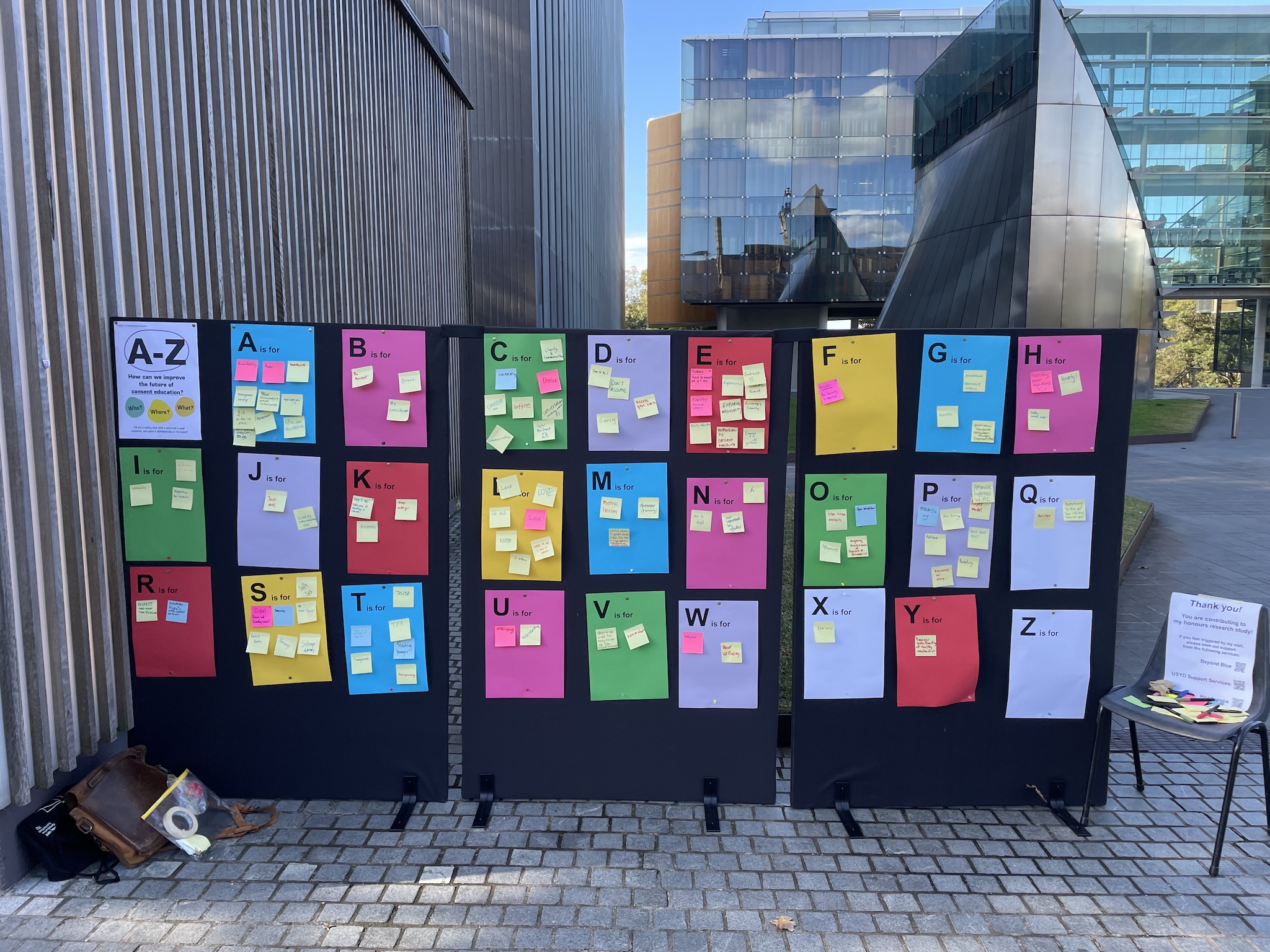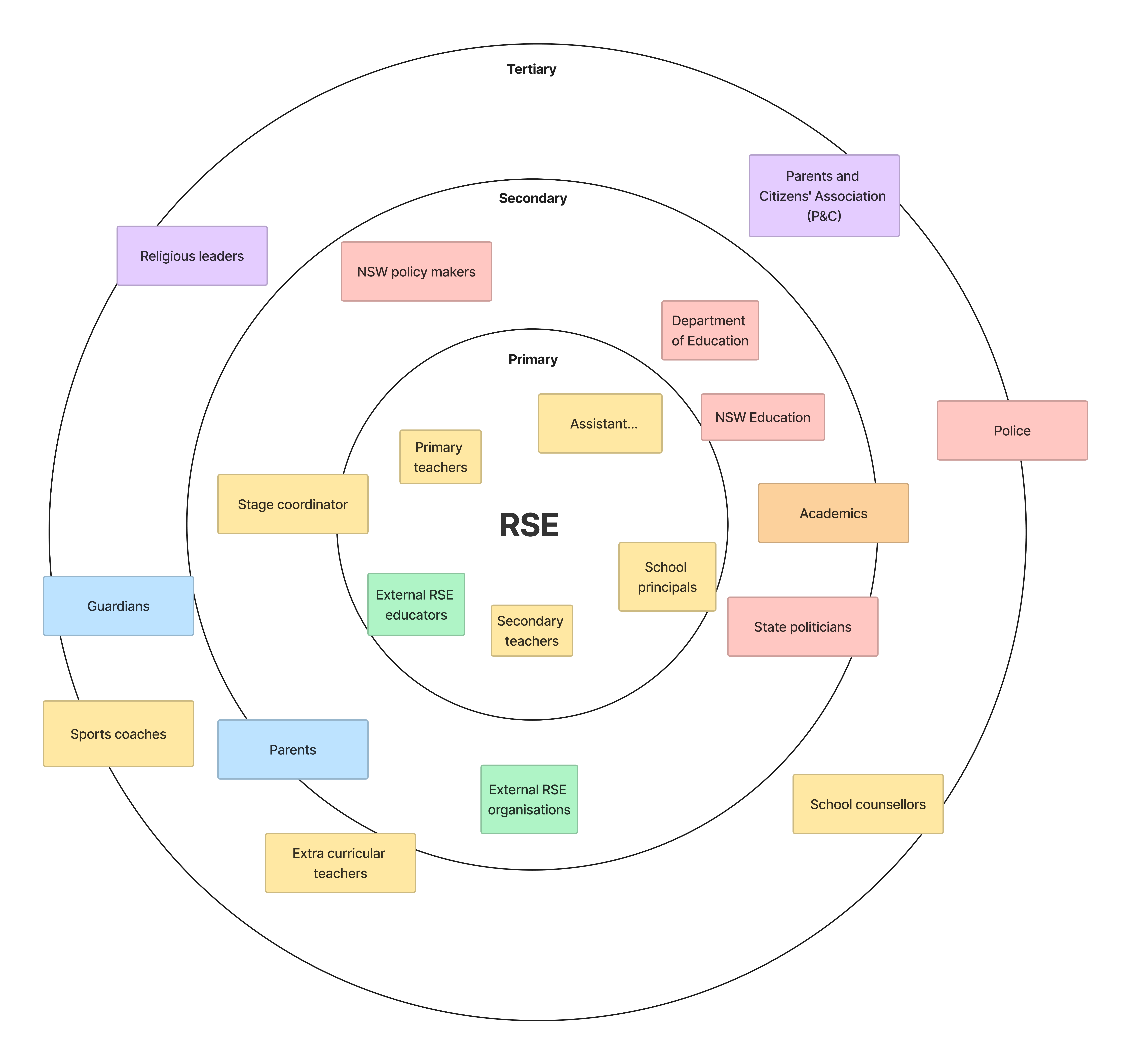An honours thesis on how to best co-design primary school consent education

How do you define the word consent? What ideas does the word connotate? Can you think of examples where consent is used?
With that in mind, how would you define consent to a child?
In the world of design, there is no bigger challenge than the many social problems that face the world today. My thesis sought to untangle some of the challenges and opportunities in an incredibly complex area – consent education in Australia.
Specifically, I looked at how co-design might lend itself to solving some of these.
Context
I had been previously working for Consent Labs and saw the challenges schools had in implementing successful consent education. While studying, I also led the educational program of a primary school out of hours care. These two experiences combined in me a desire to see if by combining community engagement with educational best practice, design could foster better outcomes in the area of consent education.
Process
The qualitative-focussed research involved methods such as:
- a literature review – grounding the research in context
- stakeholder mapping – identifying relevant parties
- 10 semi-structured extended interviews – deep diving on experiences and understanding
- an online ethnography – validating research and assumptions
- a pop-up engagement stall – novel insight gathering

Findings
The research highlights that while co-design holds great potential, there needs to be tailored consideration how it is implemented in the sensitive space of consent education.
The study also illustrates the challenges stakeholders face, and methods that help them overcome these; methods ranged from novel practices to complex stakeholder engagement.
The four key insights that presented themselves in this research were:
- The transactional view of consent
- The continuing relevance of the school setting
- Age-appropriate critical discourse
- Relationships and sex education (RSE) as a tool in addressing gender-based violence
Findings from this study contribute to discussions on the current state of consent education in Australia and the need for future research in methods of designing such an important program.
Learnings
In this project, I grew not only as a researcher but as a designer as well. While a digital solution was out of scope, the research ultimately translated into design objectives and recommendations.
Some of these learnings included:
- leading long format, semi-structured research interviews
- qualitative research synthesis
- planning and implementing a research plan
- thesis/academic writing
- sharing research with stakeholders to build commitment to the project
Acknowledgements
Supervision: Dr Leigh-Anne Hepburn
Partnership: Consent Labs
To learn more about this project, please reach out.